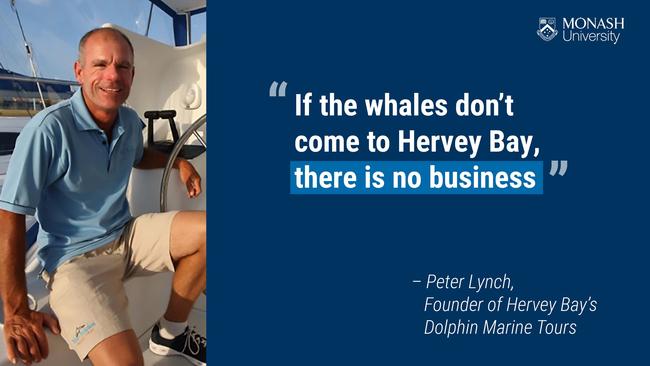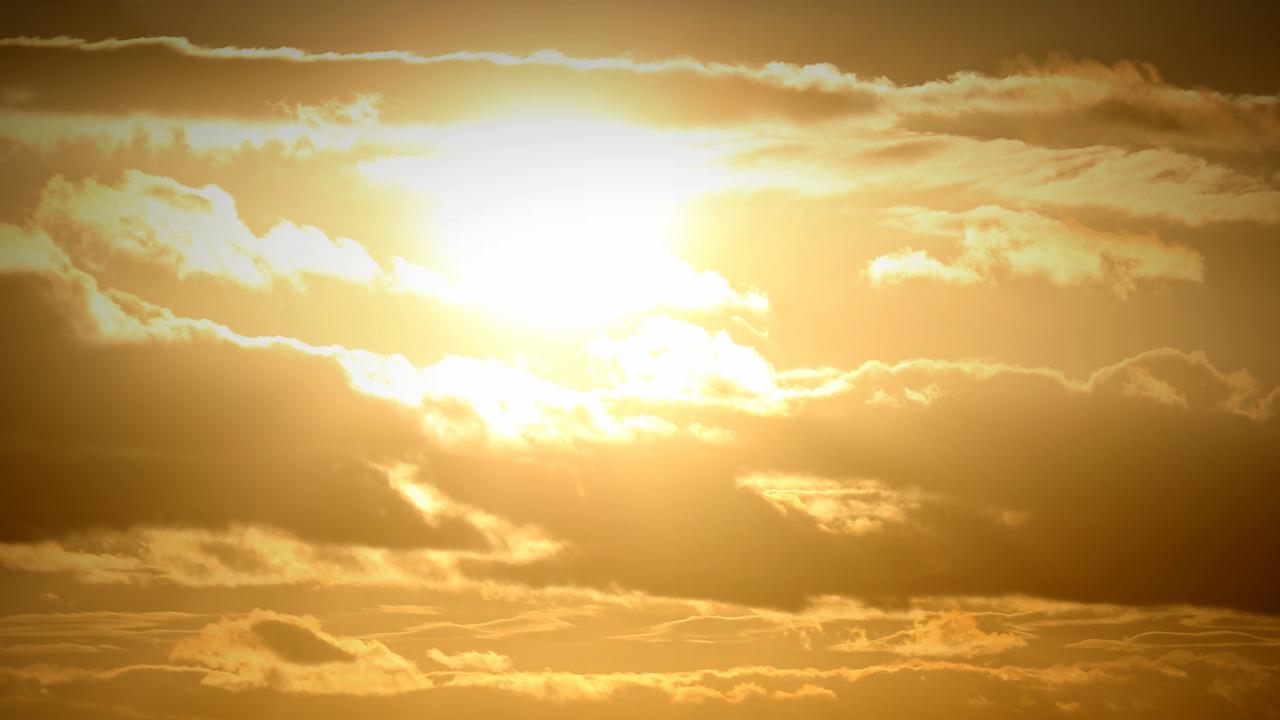Climate Change blowing a hole in whale watching season
Whale-watchers may have to put down their binoculars. Uncover why the giants of the sea and marine tourism are feeling the heat.

HyperLocal
Don't miss out on the headlines from HyperLocal. Followed categories will be added to My News.
Whale populations have been increasing since the 1960s after being hunted to near extinction.
But Peter Lynch, owner, founder and skipper of Hervey Bay's Dolphin Marine Tours, has observed some worrying changes to the east coast whale watching season over recent years.
"The season now seems to start two weeks earlier than it used to, and it finishes earlier too," said Lynch.
Lynch blends 41 years of marine mammal expertise with tailored small group experiences, and industry-accredited sustainability practices all aboard his 11.6m luxury catamaran, The Blue Dolphin.
Shifting whale migration patterns will financially impact tourism businesses that rely on a narrow operating window for their annual income.
So for operators like Lynch, protecting whales is critical.
"If the whales don't come to Hervey Bay, there is no business."
Lynch runs a clean, green operation to protect his waters, using marine-safe detergents, eliminating single-use plastics, and educating everyone who climbs aboard.
The Blue Dolphin uses just "two litres of fuel per person, which compared to a lot of other vessels, is quite small".
While Lynch's operation does its part to ease human pressures on its world-class entertainers, marine mammal experts say there are other big issues at play.
Diving in with local experts
Michael Noad, Professor of Marine Mammals at the University of Queensland, explains that southern migratory whales have made "a spectacular comeback from whaling".
It's been good news for the whale watching industry, and Noad believes baleen whales such as humpbacks, blues, and fins, are well-placed to keep swimming up and down our shores.
"But all of that could be undone by climate and krill," said Noad.
This is because baleen whales "pretty much eat one thing, and it's Antarctic krill".
Antarctic krill – tiny prawn-like critters that swim through our oceans – are sensitive to changes in their environment.
So, with climate change causing warmer, more acidic waters, retreating ice cover, changing ocean currents and food sources, the pressure is on to stay healthy.

Noad believes shrinking krill stocks pose a much larger threat to whales than renewable developments like offshore wind farms.
"It's climate change that will kill the whales, not the wind farms".
Navigating turbulent waters
While some whale watchers are beginning tours earlier in a bid to adapt, simply moving the operating season forward doesn't address the underlying climate issue and its impacts.
Protecting the east coast tourism economy will require a whale-sized reduction in greenhouse gas emissions.
Renewable energy technologies like offshore wind will support Australians in the transition to an affordable and reliable energy future, and make us a global leader in the sector.
"As an individual, you can make small changes that can help too," said Lynch.
Aboard, he encourages guests to pick up litter before it reaches the ocean, reduce unnecessary water consumption, and consider swapping krill oil tablets for a sustainable alternative.
Private boat owners can also reduce fuel consumption and emissions by keeping their pedal off the metal and redistributing weight to limit drag.
And of course, it's always important to abide by whale watching protocols.
Whale populations might be soaring right now, but as Lynch said, if we don't make these small changes soon "by the time we notice there is a problem, it will be too late".
Want more information on how your climate is changing? Check out the last article in this series.
Dr James Burgmann-Milner and Alex Dunne are staff at the Monash Climate Change Communication Research Hub.
This column is part of a collaboration between Monash University and News Corp to deliver hyperlocal weather and climate information.


